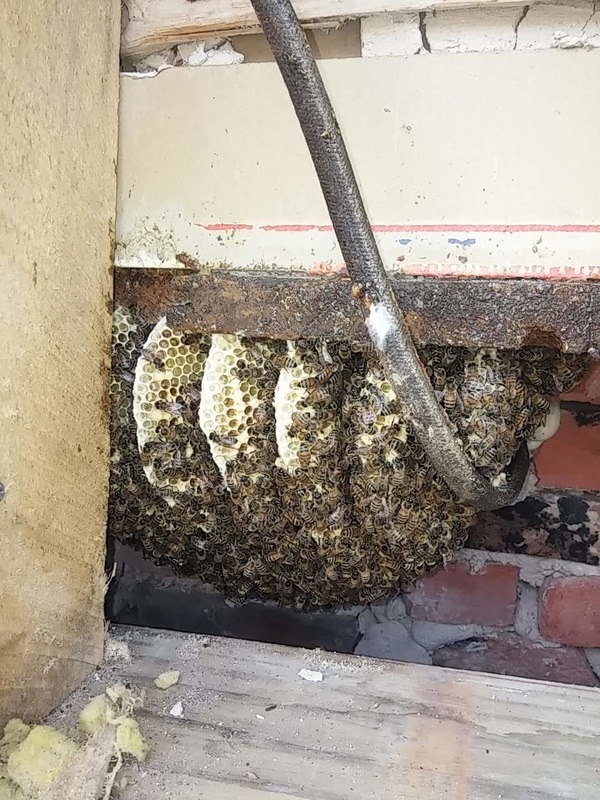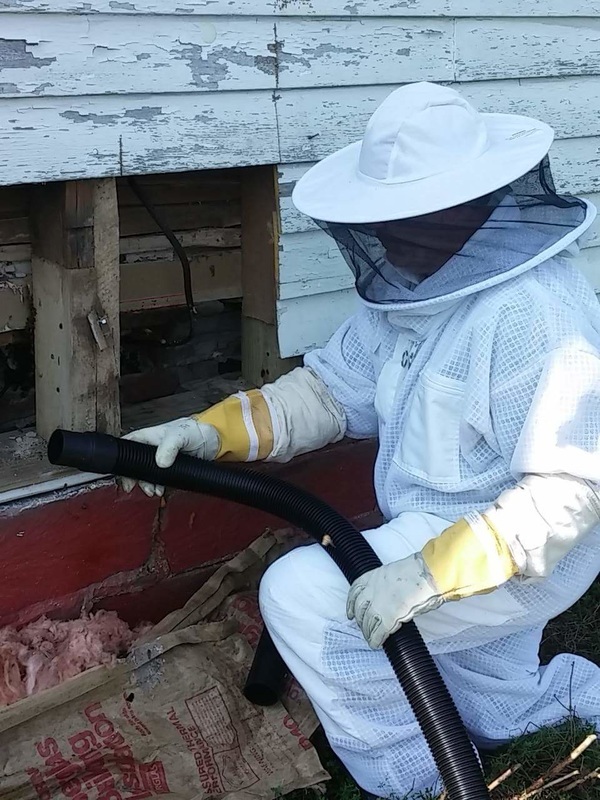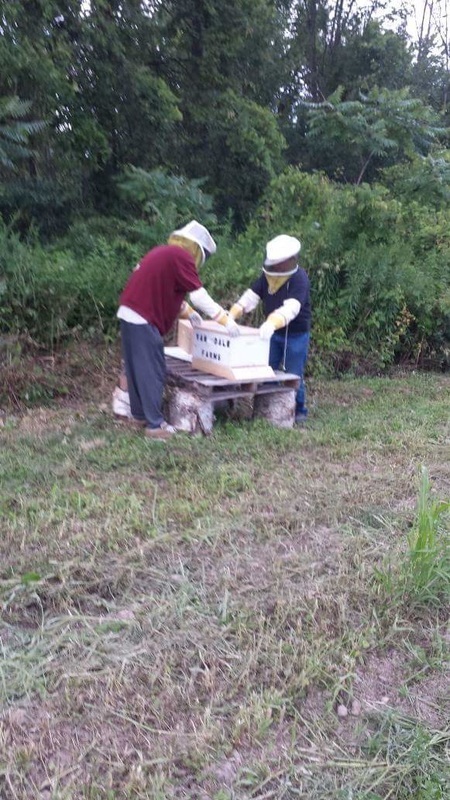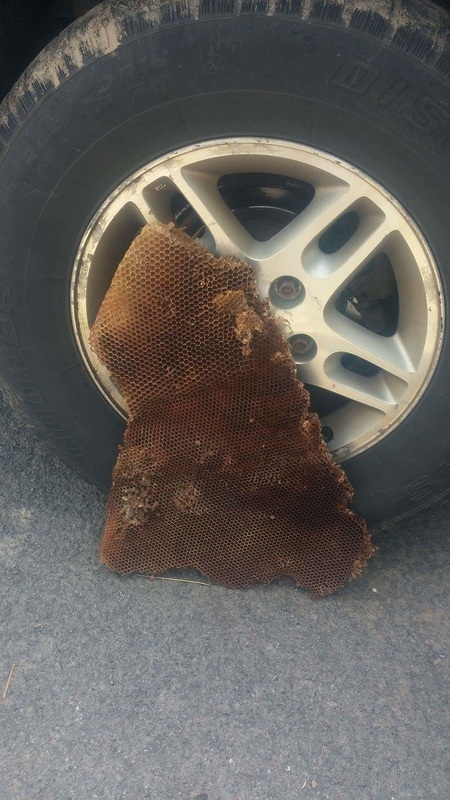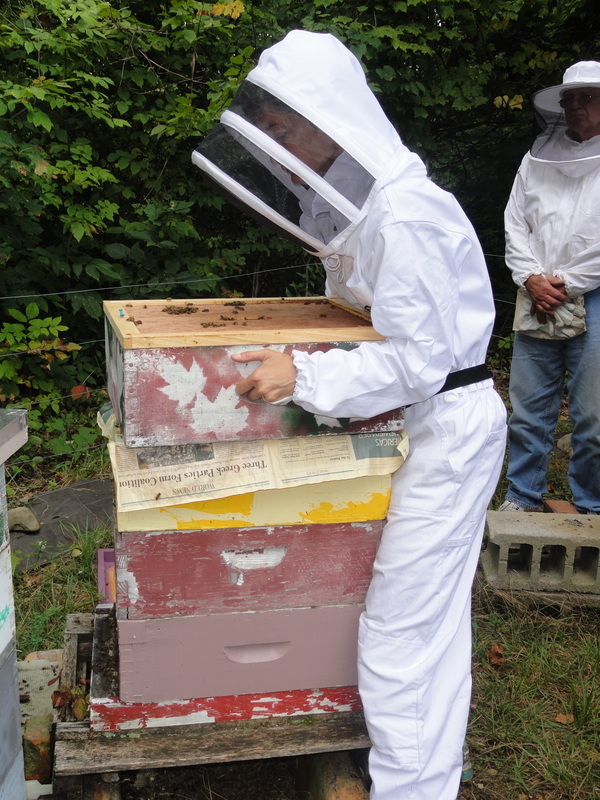Those who support the Landis Arboretum – the members, volunteers, Board, and staff – are often asked what they love most about it. The answers are as diverse as Landis itself: the trees, trails, collections, performances, star parties, and, of course, its sheer beauty and serenity. But especially regarded are the people who bring their talents and their passions like snacks in a backpack, sharing them freely. Anne Frey and Earl Van Wormer are two such friends of the Arboretum.
Anne, an Eastern Apical Society master beekeeper, has taught beekeeping at Landis for several years. She was “bitten” by the allure of these industrious insects when she moved to Delanson in 1989.
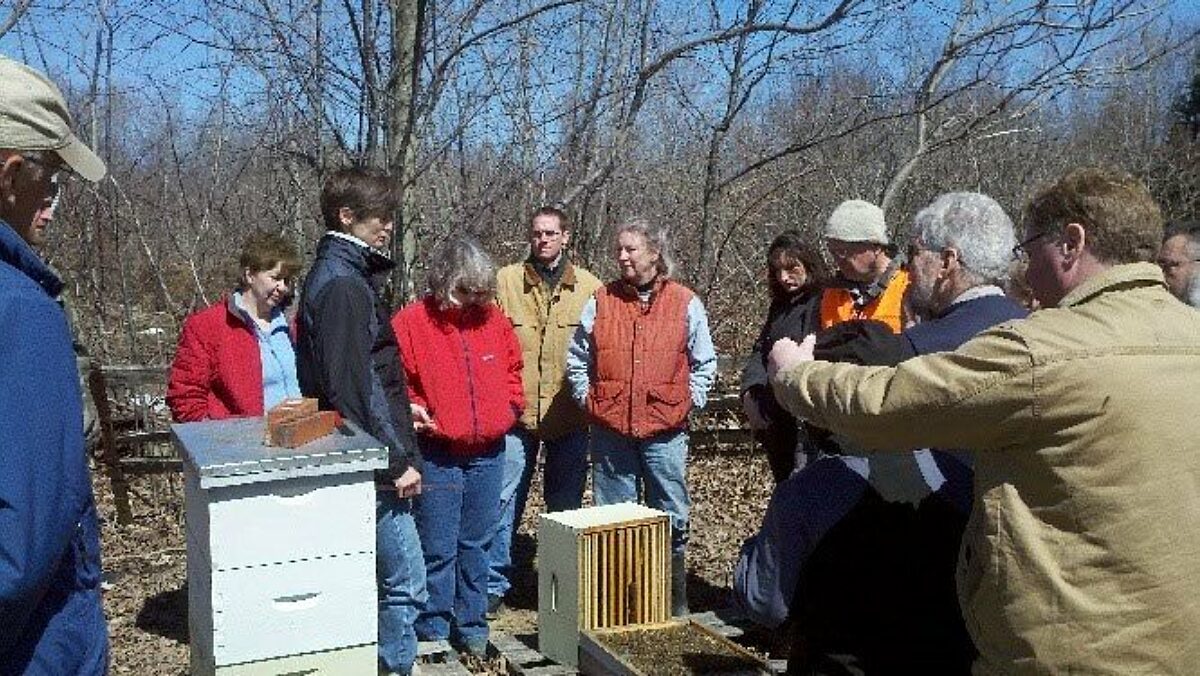
A friend who was a casual keeper of bees convinced her to “do something country.” Chickens or pigs didn’t make Anne’s short list, so she soon became an enthusiastic and knowledgeable beekeeper. This ultimately lead to her being elected president of the Southern Adirondack Beekeepers Association and a sought-after speaker and mentor throughout the area and beyond.
Earl, known for his roles in local government and as farmer and entrepreneur, serves on the Landis Board of Trustees. Some time ago he approached Fred Breglia about establishing bee hives at the Arboretum, a project that he felt was perfect for Landis and its educational mission. He envisioned placement of the hives behind the greenhouse, in a fenced area that would allow visitors a safe place to view the bees’ activity. Earl now anticipates site preparation in the fall of 2016, with the beeyard in place by spring of 2017.
Both Anne and Earl emphasize the importance of beekeepers checking hives regularly to assess the hive’s health and condition, including food supply, parasite control, brooding status, and population size. Anne maintains beeyards at several locations, and graciously provided my husband and me with a close-up look inside a hive. We suited up and modeled Anne’s calm demeanor and movements so as not to agitate the bees. We remained unscathed and carefully peered inside the frames as new bees emerged and began their short but productive dance of life.
Most people know that bees are essential for pollination. Since the appearance of Colony Collapse Disorder in 2006, public awareness of the danger to bee populations has increased, and with it, renewed interest in protecting these vital insects. Homeowners finding bees, often within the walls of a residence, are now opting to have the honeybees relocated rather than exterminated. Beekeepers such as Earl and Anne will remove the bees, which are often healthier and more parasite-resistant than those found elsewhere.
Some of the transplants could end up at Landis. Earl looks forward to this new dimension in the Arboretum’s educational programs and hopes to enlist others such as Anne Frey and Nolan Marciniec, both mentors to aspiring beekeepers.
Come to Landis this spring. As Earl says, “Many hands make light work.” And many bees make wonderful honey!

